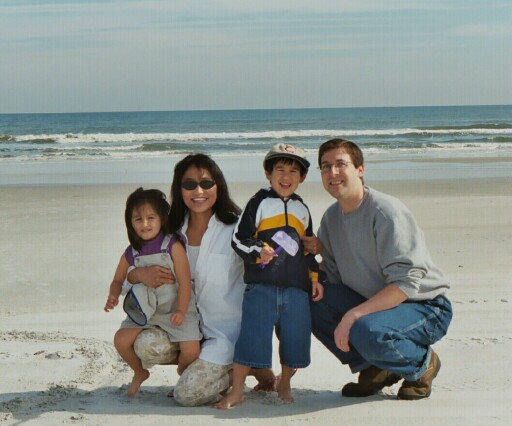THE FILIPINO FAMILY
![]()

Student Translation
(I-click ang link sa itaas at may separate window na lilitaw kung saan makikita
ang listahan ng lahat ng translation tools na maaring
magamit para sa dokumentong ito.)In Filipino society, the family is the most basic unit. Loyalty to one's family is highly valued in Filipino culture, as in most Asian cultures. Respect for one's parents and older siblings are important norms in the Philippines. One does not address his/her parents by their first names but by the use of terms such as _________ (for mother, mama, mommy) or _________ (for father, daddy, papa). In most urban centers in the Philippines, the use of English terms "daddy" and "mommy" are quite common (or the Spanish "papa" or "mama"). Siblings of one's parents are addressed as _________ (aunt, auntie) and Tito (uncle). Older siblings and cousins are addressed as _________ (for females) and _________ (for males). Grandparents are called _________ (grandpa) and _________(grandma).
In traditional Filipino families, the mother takes care of the affairs in the house while the father earns the family income. The mother is expected to manage the affairs of the home --- food, laundry, making sure the house is clean, budgeting the money, etc. --- while the father simply has to ensure that there is money to sustain the needs of the family.
However, these traditional roles of the wife and the husband have changed with the times. Today, in most urban centers of the Philippines two-income families are quite common, with both parents having full-time jobs. The mother still takes care of the household chores but with the help of a _________ (domestic aid/helper) and a _________ (nanny) who takes care of the baby/toddler at home. In absent-parent families where both parents are forced to find jobs abroad, taking care of the children are left to extended families, either through the grandparents or uncles and aunts.